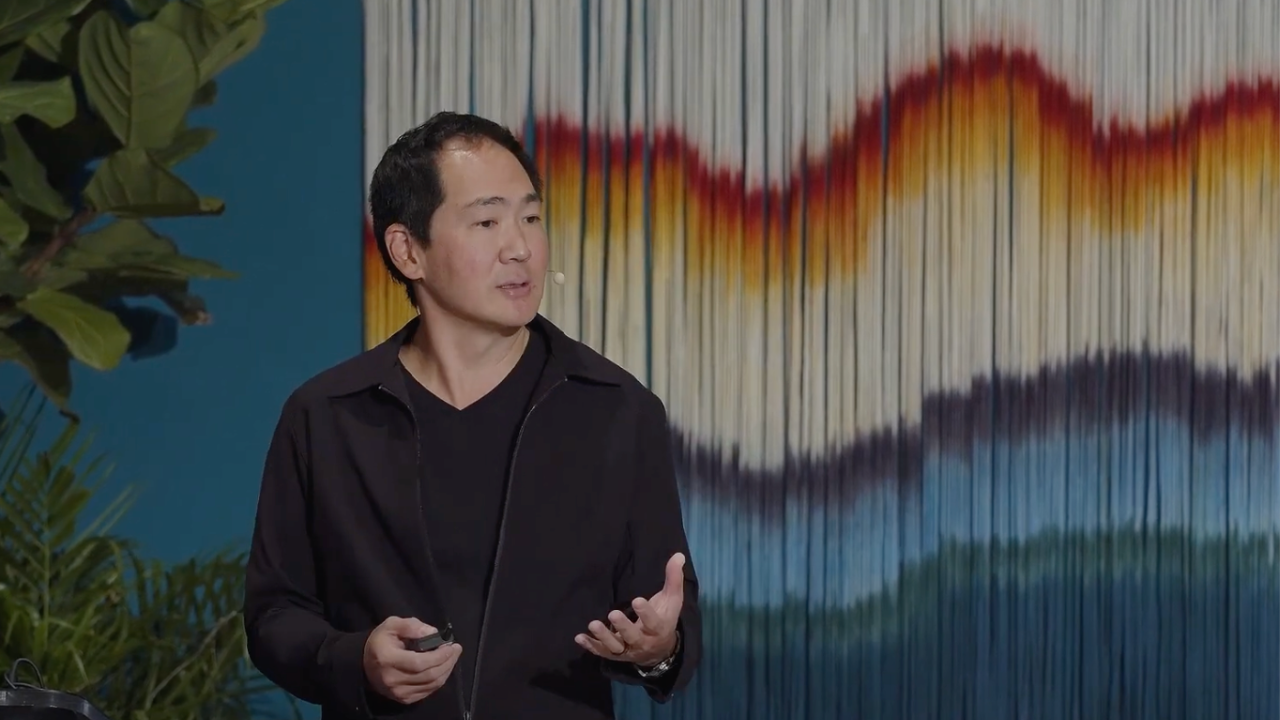Tiffani Bova, global growth evangelist at Salesforce and author of The Experience Mindset, joined us for an insightful conversation about how the customer and employee experience intersect and why business leaders must adopt a holistic approach to Stakeholder Orientation while focusing on the employee experience to be successful.
Throughout this Virtual Gathering, Tiffani shares three main takeaways to help Conscious Leaders leverage the power of their employees — not just their customers — to influence their business outcomes.
Unlocking growth requires a shift in mindset
As a young manager first working in sales, marketing, and customer service for the tech industry nearly 30 years ago, Tiffani focused on performance and revenue — noting that as she continued to receive promotions and be successful in terms of conventional business practices of the time, none of her managers mentored her on how to lead people. “Now, leaders are far more aware of the importance of taking care of people and putting people at the center of decisions,” Tiffani shares.
Tiffani’s mindset about leading people began to change when she joined Gartner, a leading technological research and consulting firm, as a research fellow. Through her focus on the common challenges businesses of every size seemed to face, she shifted her worldview from thinking in the business, in terms of results and operations, to thinking about the business, meaning purpose and people.
However, Tiffani shares it was not until she joined Salesforce that her perspective around “the power of culture, the power of people, and the role they play in innovation, growth, serving customers, and fulfilling the promises a brand makes” came into full view.
She credits the co-founder and CEO of Salesforce, Marc Benioff, for creating an environment in which “doing well” and “doing good” can live side by side. It is this human-focused business mindset, Tiffani says, that unlocks growth.
What works for your customers may not work your employees
Having started in the tech industry in the 1990s, Tiffani has seen many processes change over the years. In the early days of e-commerce, business leaders worked to make the customer experience as streamlined as possible. Now, decades later, Tiffani points out, businesses are still hyper-focused on improving the customer experience by reducing their effort, leading to the question: How does this impact employees?
While now an online order only takes a couple of clicks and can be fulfilled within a matter of hours, Tiffani shares that the process that an employee must undergo to meet a business’s promise made to the customer can be vigorous. “We force our employees to bounce between multiple applications — one to find a product, one to order, one to enter credit card information, one to enter shipping information, and then one to track an order. We ask our employees to do things we would never expect customers to do,” and employees feel left behind.
As customer efforts decrease, employee efforts increase. As customer experience improves, employee experience worsens — and this is backed by research Tiffani has led at Salesforce.
Employees are the keepers of the promises you make as a leader of a company.”
52% of C-suite executives believe the technology their company uses is effective and helps their employees work efficiently. However, only 32% of employees agree with this statement. Furthermore, Tiffani expands, when this question was asked specifically of customer-facing employees, only 20% agreed that the systems and tools they have allow them to collaborate better, be more productive, and be more efficient and effective in their jobs. Clearly, there is a disconnect between customer experience and employee experience.
Invest in your employees to invest in your customers
Tiffani advocates that the answer to bridging the gap between customer and employee experience is hiding in plain sight: When employees are empowered, engaged, and love their job, they view enriching customers’ lives as the core purpose of the company — and their day-to-day work. In other words, employees who feel more valued, regardless of their role within the company, will care more about the customer, the company, and therefore their quality of work and productivity.
“The fastest way to get customers to love your brand is to get employees to love their job. Employees are the keepers of the promises you make as a leader of a company,” Tiffani says.
So, how can business leaders help employees feel more empowered and engaged? Tiffani encourages leaders to start by asking employees, “What is one thing I could do as a manager to remove obstacles from your work, so that you can be the best you can be?”, and take it step by step from there. Ensure that your employees have the tools, training, and environment they need to deliver on the promises your company makes to the customer by asking employees for their input, listening to their feedback, and closing the loop by either offering better solutions or explaining why certain processes cannot be changed.
Regardless of an employee’s role or level within a company, the more they feel invested in and valued, the more they will care about the customer, the company, and therefore their quality of work and productivity. From Tiffani’s viewpoint, therein lies the magic of full Stakeholder Orientation, where employees and purpose are valued just as much as customers and revenue.
Attend an upcoming virtual gathering
Our Virtual Gatherings are designed for business leaders, investors, and advocates who are looking to level-up their practice by learning from and connecting with Conscious Capitalists around the world.


